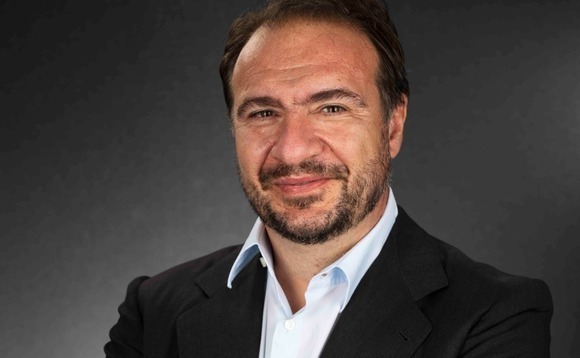
Q&A: Mubadala's Luca Molinari

An Abu Dhabi-headquartered sovereign investor Mubadala has a USD 276bn portfolio with interests across six continents. Luca Molinari, who leads Asia direct investments, outlines the regional strategy
Q: How significant is Mubadala's Asian exposure?
A: We invest outside of the UAE and the Middle East through three strategies: direct investment, real estate and infrastructure, and disruptive investment, which includes our early stage and growth investment activities. We are underexposed to Asia compared to the ideal level, so one of our overall priorities is to rebalance that geographic mix, in accordance with the mandate of each strategy. If you look at everything Mubadala is invested in and exclude our subsidiary, Abu Dhabi Investment Council, and our exposure to the UAE and the Middle East, which is a significant part of the portfolio, Asia is in the mid to high single digits. Within Asia, our two largest publicly disclosed positions are in India: Jio Platforms and Reliance Retail.
Q: What was appealing about those assets?
A: They were opportunities to partner with top-quality entrepreneurs, who have been successful in pretty much every business initiative they have launched, and financial institutions we know well and have worked with before. And we could deploy significant capital. It was almost an ideal combination.
Q: The Jio Platforms and Reliance Retail Investments are relatively recent, coming in the second half of 2020 and the first half of 2021. Before that, was the Asia portfolio China heavy?
A: Yes, before those two investments, we were more skewed towards China, but relative to the overall portfolio, the exposure was small scale. I would look at it as part of our evolution as a large global investor. In the beginning, we concentrated our activities in China because it is the largest Asian economy, and it offered a broad range of actionable investment opportunities. The shift is not the result of a negative view of China. We always expected to expand our scope of activity into other significant geographies, and we think now is the right time to do that.
Q: To what extent were you motivated by the emergence of more investment opportunities in the broader Asian region?
A: It's a chicken-and-egg argument. You decide to explore a new theme or geography based on an outside-in view; you spend more time on the inside, meeting companies, management teams, and investment partners; and you become aware of trends and situations that you wouldn't necessarily have been able to observe from the outside. So, it's a combination of an outside-in realisation that we wanted to be more active in Asia beyond China and what we have observed on the ground by becoming more active and engaged. Overall, Asia remains a consumer-driven story. More than half of our investment pipeline relates to that macro trend – rising consumer disposable incomes and a greater propensity to spend on discretionary products and services. In certain markets, there is more potential for infrastructure; our Tata Power Renewables in India is an example of that. In Japan and South Korea, there are more buyout opportunities, and a significant portion of the investment pipeline relates to large conglomerates rationalising their portfolios to concentrate on their core businesses.
Q: Why is Mubadala's only Asian office in Beijing?
A: When we decided to increase our exposure to China, many of the investment institutions we work with and compare ourselves to had sizeable operations in Beijing. When I started in private equity over 20 years ago, Hong Kong was the hub and Singapore was a significant location. Since then, Beijing has become a hub as well for international, pan-Asian, and domestic institutions, so we were not the exception to the rule in going there.
Q: A lot of the early investment activity in China was characterised by growth-stage technology deals. Is that now changing?
A: We are looking to invest more in established businesses, which is consistent with how we are organised and with the mix of our investment strategies and mandates. The digitally driven consumer story will continue to be important, and we will not stop investing behind those themes and trends. At the same time, we want to participate in larger transactions and structures where we are part of a controlling investment consortium or a significant minority shareholder. We started out doing more early-stage and growth investing, but the objective is to create a balanced portfolio. We hope that, in a few years from now, our portfolio in China and in Asia more broadly reflects that mix. While not a majority of the investment pipeline, it is certainly becoming less uncommon for a business to be acquired by a combination of financial institutions. Often, the founder and management team are part of that control group because in many respects, investing in Asia is about having confidence in the key people behind a business.
Q: Do you work alongside financial sponsors in every investment in Asia?
A: We have significant capital to invest, and we also have the awareness and humility to recognise that if it's a market we are less familiar with, it makes a lot of sense for us to partner with established local institutions. It would be extremely rare for us to make a significant investment away from trusted partners and relationships that we have spent months if not years building. Everywhere we have been, we have adopted a very gradual approach – in terms of the pace of our investment, where and how we have scaled, and building partnerships. I don't see any reason why our approach to Asia would be any different. If anything, I hope it will be quicker. There are also lessons we have learned and mistakes we've made over the years that are helpful to us now.
Q: What are the biggest challenges in getting exposure to Asia?
A: It's a competitive business and we make decisions based on very imperfect, sometimes contradictory, information. We will not get everything right, we will make mistakes, so the challenge becomes getting more decisions right than wrong and getting the big calls right. It's like other parts of the world. Investing in Asia is different in that there are important local complexities and nuances, and the people factor – the quality of management teams, of CEOs and the executive layers under them – is in my experience, even more crucial in Asia than elsewhere.
Q: How active is Mubadala as a fund investor?
A: We make fund commitments in Asia selectively. It's part of our evolution. When we establish partnerships with other investment institutions, sometimes the partnership is formalised through an LP commitment to a fund. There is a no preset standard or golden rule – if a fund commitment generates co-investment opportunities, that's a great outcome, but there's no quid pro quo. It is important for us to see a high level of convergence with the institutions we support through funds in terms of investment philosophy, style, and personal chemistry.
Q: What is your headcount in Asia and to what extent does it have a restraining or enabling impact on activities in the region?
A: We have about 25 people based in Beijing and they have a China mandate. Another 15-20 people in Abu Dhabi spend a lot of time looking for opportunities in Asia. And then we have very deep and extensive sector teams in our main office in Abu Dhabi, in North America, and to some extent in Europe. We can rely on those sector experts when we have interesting opportunities to execute in Asia. It is a matrix concept – bringing domain expertise and local knowledge to bear. On top of that, the partnership approach is pervasive across Mubadala.
Q: The pace of investment has slowed in China as private equity fund managers look to conserve capital. What does this mean for Mubadala as an investor with long horizons?
A: We get a lot of calls all the time, almost regardless of market conditions. When there is optimism and euphoria in the market, we hear from many interested buyers. When conditions are where they are now, we hear from motivated sellers. We are never short of opportunities to deploy capital. When it comes to the cyclicality of the business, we try to ignore it. We are not market timers. Historically, throughout my entire career, I have seen more downside than upside when trying to time the market instead of focusing on fundamentals. Our mission is to invest in great businesses run by great people alongside great partners. We must also be happy to hold these businesses for a long period of time; if for whatever reason, the capital markets or M&A markets are not accessible for 5-7 years, we are still there. We do try to maintain a steady pace of investment and I think we did a pretty good job of that, pre-COVID, in the middle of COVID, and post-COVID.
Q: Could you hold an investment forever?
A: When we make an investment, the assumption is that we will not hold forever – and if we don't see a path to monetisation, we don't invest. Our shareholder expects us to generate and crystallise financial returns. At the same time, we don't depend on the ups and downs of the fundraising cycle. We have the flexibility to continue to hold assets for longer than traditional private equity. If a business continues to generate the ROEs that we are targeting, we don't have to sell. One of the golden rules of investment is if you own a great business, don't look at the calendar, don't look at the clock.
Q: A lot is made of the Middle East-Asia relationship, and especially the Middle East-China relationship, given recent geopolitical tensions. What does it mean to you?
A: The fact there are constructive relations at the leadership level is a consideration, but those relationships exist in many parts of the world. We are driven by the commercial attractiveness of an investment. Those relationships are a nice-to-have; they are not a reason why investment decisions go one way or another.
Latest News
Asian GPs slow implementation of ESG policies - survey
Asia-based private equity firms are assigning more dedicated resources to environment, social, and governance (ESG) programmes, but policy changes have slowed in the past 12 months, in part due to concerns raised internally and by LPs, according to a...
Singapore fintech start-up LXA gets $10m seed round
New Enterprise Associates (NEA) has led a USD 10m seed round for Singapore’s LXA, a financial technology start-up launched by a former Asia senior executive at The Blackstone Group.
India's InCred announces $60m round, claims unicorn status
Indian non-bank lender InCred Financial Services said it has received INR 5bn (USD 60m) at a valuation of at least USD 1bn from unnamed investors including “a global private equity fund.”
Insight leads $50m round for Australia's Roller
Insight Partners has led a USD 50m round for Australia’s Roller, a venue management software provider specializing in family fun parks.







